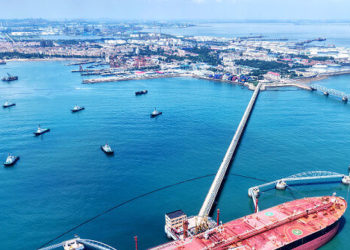Thaksin Shinawatra, a former prime minister of Thailand who is still one of the most powerful politicians in the country, won an important legal victory on Friday, as a court dismissed a case accusing him of insulting the nation’s monarchy.
Mr. Thaksin was indicted last year and was the most high-profile figure to be charged with violating the royal defamation law, which is one of the world’s harshest and has long been used to squash dissent. He faced a maximum sentence of 15 years in prison.
The charges against Mr. Thaksin, 76, were widely seen as politicized, the latest salvo in a decades-long clash for power between him and Thailand’s royalist-military establishment. They stemmed from an interview he gave a decade ago and were filed by a general on behalf of the military junta that was in power at the time.
On Friday, the Criminal Court in Bangkok ruled that Mr. Thaksin’s interview could have been edited in a way that did not fully represent his remarks. It also said that Mr. Thaksin did not specifically mention the monarch at the time.
Dozens of Mr. Thaksin’s supporters, dressed in their trademark red shirts, gathered outside the Criminal Court in Bangkok on Friday morning. After the ruling, Mr. Thaksin smiled and waved at reporters outside the courtroom as he said, “Acquitted!”
But Mr. Thaksin and his family still face legal threats. His daughter Paetongtarn Shinawatra was recently suspended as prime minister by a court and could be barred from politics.
Mr. Thaksin, a charismatic telecom billionaire, galvanized rural voters with populist policies that brought him into the prime minister’s office in 2001. He was ousted in a coup five years later and eventually fled Thailand but remained a force in Thai politics. His sister Yingluck Shinawatra was elected prime minister in 2011, only to be removed in another coup, in 2014.
The following year, Mr. Thaksin told the Chosun Ilbo, a South Korean newspaper, that a “palace circle” helped engineer the coup that deposed his sister. The defamation case against him stemmed from this interview, but Mr. Thaksin, who was then living in Dubai, was out of the Thai authorities’ reach.
Even in his absence, political parties linked to Mr. Thaksin consistently won the most votes in national elections in Thailand. The streak was broken in 2023, when the progressive Move Forward Party clinched a surprise victory.
That same year, Mr. Thaksin made a dramatic return to Thailand, a move many viewed as part of a deal between him and the old guard to keep Move Forward out of power. Mr. Thaksin’s Pheu Thai Party then formed the next government. And the king pardoned Mr. Thaksin, who had been convicted on charges of corruption and abuse of power and sentenced to eight years in prison. He did not spend a single day behind bars.
But last June, Mr. Thaksin was indicted over the defamation charges, which analysts saw as evidence of the establishment’s leverage over him. He was also accused of violating the Computer Crime Act for the interview with the Chosun Ilbo because it was disseminated online. All charges against him were dropped on Friday.
Mr. Thaksin’s acquittal puts him in a small minority; the conviction rate in royal defamation cases is 87 percent. In 2021, a man was sentenced to 50 years in prison for flouting the so-called lese majeste law.
“Thaksin’s acquittal is legally unsurprising — most scholars agree that his 2015 remarks did not meet the threshold of Section 112,” said Akarachai Chaimaneekarakate, a member of the group Thai Lawyers for Human Rights, referring to the royal defamation law. “The harder question is why so many ordinary people have been convicted for speeches that clearly don’t fall foul of the law either. Like Thaksin, they deserve justice, too.”
Chalut Komolthiti, 71, was among the Thaksin supporters assembled outside the courthouse. He teared up as he recalled how he had paid peanuts for a heart bypass surgery because of the universal health care program that Mr. Thaksin instituted when he was premier.
“I am still alive because of him,” said Mr. Chalut. “In my mind, I would say it’s the opposite side who is smearing him. They keep saying he is bad, but why did he develop the country so much that it prospered? No one talks about that anymore.”
Mr. Thaksin is under scrutiny for a six-month detention in a V.I.P. hospital suite, which critics say helped him avoid spending time in prison after he returned to Thailand. The verdict will be heard on Sept. 9.
Kittiphum Sringammuang contributed reporting.
Sui-Lee Wee is the Southeast Asia bureau chief for The Times, overseeing coverage of 11 countries in the region.
Muktita Suhartono reports on Thailand and Indonesia. She is based in Bangkok.
The post Thaksin, Former Thai Premier, Cleared of Insulting Nation’s Monarchy appeared first on New York Times.




